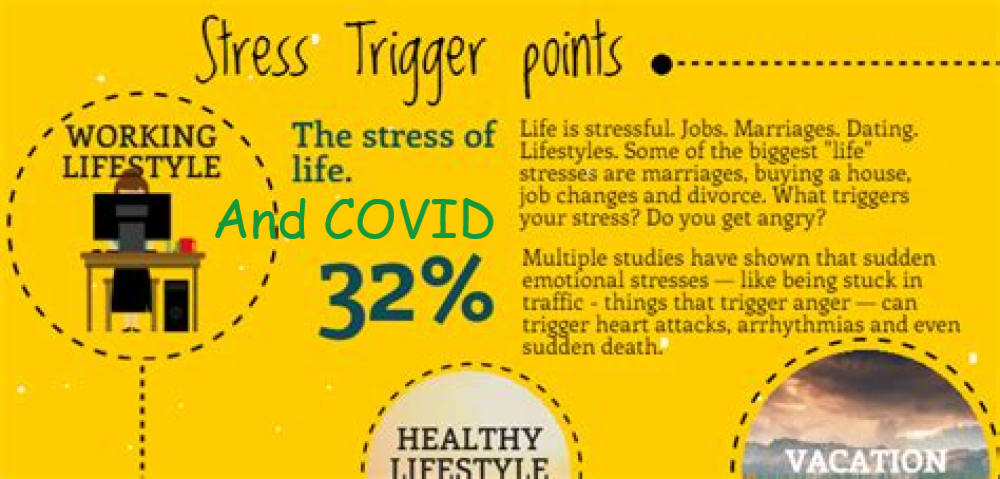Authors: Lea Waters,1,*Kelly-Ann Allen,1,2 and Gökmen Arslan3,4
Abstract
The move to remote learning during COVID-19 has impacted billions of students. While research shows that school closure, and the pandemic more generally, has led to student distress, the possibility that these disruptions can also prompt growth in is a worthwhile question to investigate. The current study examined stress-related growth (SRG) in a sample of students returning to campus after a period of COVID-19 remote learning (n = 404, age = 13–18). The degree to which well-being skills were taught at school (i.e., positive education) before the COVID-19 outbreak and student levels of SRG upon returning to campus was tested via structural equation modeling. Positive reappraisal, emotional processing, and strengths use in students were examined as mediators. The model provided a good fit [χ2 = 5.37, df = 3, p = 0.146, RMSEA = 0.044 (90% CI = 0.00–0.10), SRMR = 0.012, CFI = 99, TLI = 0.99] with 56% of the variance in SRG explained. Positive education explained 15% of the variance in cognitive reappraisal, 7% in emotional processing, and 16% in student strengths use during remote learning. The results are discussed using a positive education paradigm with implications for teaching well-being skills at school to foster growth through adversity and assist in times of crisis.
Introduction
Novel coronavirus (COVID-19) spread rapidly across the globe in 2020, infecting more than 70 million people and causing more than 1.5 million deaths at the time of submitting this paper (December 8, 2020; World Health Organization, 2020a). The restrictions and disruptions stemming from this public health crisis have compromised the mental health of young people (Hawke et al., 2020; UNICEF, 2020; Yeasmin et al., 2020; Zhou et al., 2020). A review assessing the mental health impact of COVID-19 on 6–21-year-olds (n = 51 articles) found levels of depression and anxiety ranging between 11.78 and 47.85% across China, the United States of America, Europe, and South America (Marques de Miranda et al., 2020). Researchers have also identified moderate levels of post-traumatic stress disorder (PTSD) in youth samples during the COVID-19 pandemic (Guo et al., 2020; Liang et al., 2020; Wang et al., 2020).
Adolescence is a critical life stage for identity formation (Allen and McKenzie, 2015; Crocetti, 2017) where teenagers strive for mastery and autonomy (Featherman et al., 2019), individuate from their parents (Levpuscek, 2006), and gravitate toward their peer groups to have their social and esteem needs met (Allen and Loeb, 2015). The pandemic has drastically curtailed the conditions for teens to meet their developmental needs (Loades et al., 2020). Gou et al. (2020, p. 2) argue that adolescents are “more vulnerable than adults to mental health problems, in particular during a lockdown, because they are in a transition phase… with increasing importance of peers, and struggling with their often brittle self-esteem.”
In addition to the researching psychological distress arising from COVID-19, it is also important to identify positive outcomes that may arise through this pandemic. Dvorsky et al. (2020) caution that research focused only on distress may create a gap in knowledge about the resilience processes adopted by young people. In line with this, Bruining et al. (2020, p. 1) advocate for research to keep “an open scientific mind” and include “positive hypotheses.” Waters et al. (2021) argue that researching distress during COVID-19 need not come at the expense of investigating how people can be strengthened through the pandemic. Hawke et al. (2020), for example, found that more than 40% of their teen and early adult sample reported improved social relationships, greater self-reflection, and greater self-care.
Focusing on adolescents and adopting positive hypotheses, the current study will examine the degree to which a positive education intervention taught at school prior to the COVID-19 outbreak had an influence on three coping approaches during remote learning (i.e., positive reappraisal, emotional processing, and strengths use) and on student levels of stress-related growth (SRG) upon returning to school.
For More Information: https://www.ncbi.nlm.nih.gov/pmc/articles/PMC8174561/
